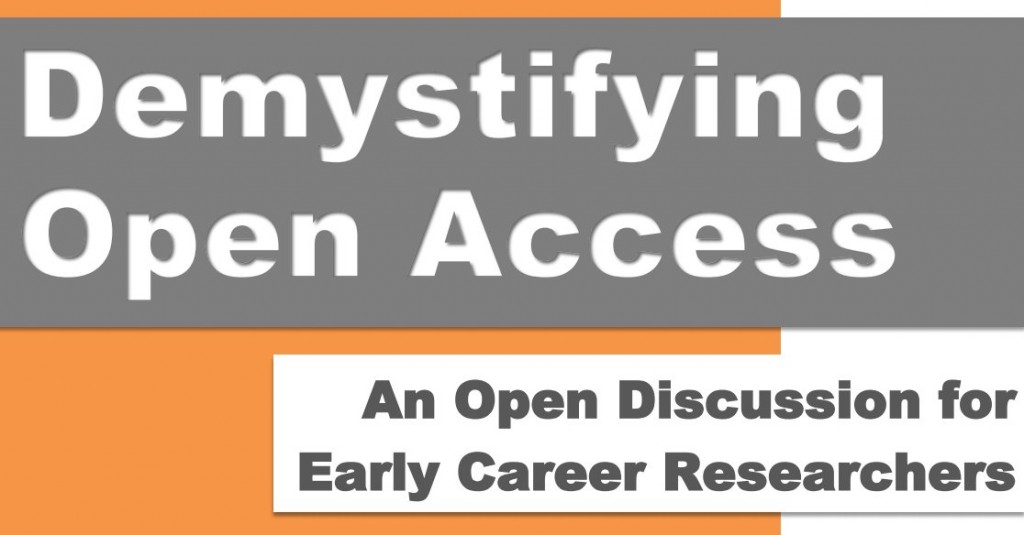Last year, we held a great debate on open access, featuring both traditional and open access publishers. This year we’re making the discussion wide open while exploring how it can help early career researchers in a market place of discussion.
Young scientists rely on their supervisor’s advice regarding where to publish and are often instructed to aim for a traditional high impact journal, but this is not the only way! In fact, with the loss of the author’s copyright and the restricted availability of research, we would argue that it is not the best way either! In the Demystifying Open Access session, we will explore the advantages of publishing in open access journals, while demystifying the technical aspects. In particular, how it can benefit young scientists without compromising their careers.
The audience will cover questions such as: How can we measure the impact of an open access paper? What does it cost? And how does publishing open access research benefit the author and the research community? All interested scientists are invited to join us over drinks and nibbles.
The session will be taking place on Thursday, 11 April in Room B12 from 17:30–19:00. Drop in and join the discussion!


http://edit-it.org/
Thank you for the list of universities. It will help me to choose the best one. Cheers!
Peter Matthews
Open (free) access for readers does not mean open (free) access for authors. Even in the absence of page charges or other author fees, language barriers can make publishing more expensive for some authors than others. The quality (a.k.a. readability) of open access publications, like print publications, also depends on the efforts of reviewers, editors, proofreaders, copyeditors, and journal editors. If impact factor is not the prime concern (and it shouldn’t be!) then we also have to worry how permanent a publication is, or whether it has back up repositories that will guarantee access in the future, even if the publication ceases to be issued. With the sudden and global expansion of untested online journals, using generic off-the-shelf publishing systems, there will be – it’s a statistical certainty – a large amount of trial, error, failure, and disappearing work.
Between doing research, and having research published, there are many constraints and difficulties – a bottleneck.
The Research Cooperative is a network of researchers, editors, translators, illustrators, and others that I have been developing in order to address this bottleneck in the research communication process.
Ultimately, this will not be enough, even if our network becomes wildly successful. We also need discussions (like the one here at Geolog) on the entire universe of academic publishing, and all the possible ways that research can be communicated for general benefit.
Thanks for providing this virtual rock as a podium for self-expression!
Peter